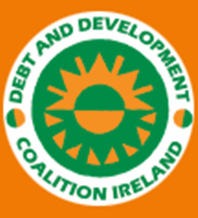A Global Justice Perspective on the Irish EU-IMF loans: Lessons from the Wider World

The following is taken from Debt and Development Coalition Ireland's publication 'A Global Justice Perspective on the Irish EU-IMF Loans: Lessons From the Wider World'.
This document outlines lessons from the global debt justice movement in responding to debt crises, provides a background to the Irish EU-IMF loans (up to the 28 November 2010 - before the loan documents were made public), and offers some recommendations from DDCI based on these lessons from our work. It also flags up recommendations from other groups.
Key Lessons highlighted include:
- The legitimacy of the IMF as a lending institution is deeply questionable – due to its undemocratic governance structure, the devastating impacts of its policy conditions on the world's poorest people, and its lack of transparency. Unfortunately the IMF has not adequately reformed its policy conditionality practices since the recent global financial crisis. Since becoming a member of the IMF in 1957, Ireland has failed to influence the IMF to reform in these areas.
- The practice of lender policy conditionality hides who are the driving forces behind policy actions taken by borrowing governments.
- The precedent of the EU-IMF lender combination has shown the EU to have adopted a tough position toward EU countries in crisis. New proposals on lending practices within the EU are already forthcoming from government and civil society sources and need to be monitored in terms of their implications for international lending practices and any impact on Southern nations.
- It has been possible for Southern borrowing countries in debt crises to stand up to lenders and survive. Justice campaigners in Southern countries and some governments, have also demonstrated that there are alternatives to lenders' policy conditions and the importance of fighting for them
Recommendations from DDCI:
Lesson 1:The IMF and Ireland's Membership
Recommendation: Fundamental reform of the IMF's role is long overdue. DDCI has been calling for a set of key reforms in Irish government policy toward the IMF central to which are:
- An end to the IMF's practice of attaching economic policy conditions to its loans
- Fundamental reform to the IMF's governance structure to include far greater voice and vote for Southern countries (for example through introducing a double majority voting system)
Lesson 2: Policy Conditionality and the EU-IMF Lending Dynamic
Recommendation: If the EU-IMF loans are accepted by Ireland (DDCI is not proposing that the loans should be accepted by Ireland) there must be total transparency so that the roles the EU and IMF are playing as combined lenders are clear:
- All loan documents must be made public and put before the Dáil for decision. In the case of the potential drawing up of loan documents before the 2010 budget, they must be scrutinised, debated and voted on in the Dáil before the budget is published.
- The Irish government must make public to the Dáil and the Irish people, the areas of agreement and divergence between the Irish government, the EU and IMF through the full period of negotiation on any loan agreements;
- All records of dialogue with the EU-IMF lenders should be publicly available now and through all reporting stages on any loans.
- In any subsequent annual budgets, any lending or review documents should be put to the Dáil for decision after the national budget is agreed so that lending agreements or recommendations from lenders do not take precedent.
Lesson 3: Potential new EU/International approaches to lending and borrowing?
Recommendation: Any proposed new lending or debt management principles that may emerge among EU member states in response to the eurozone crisis must support Southern nations' right to debt justice.
Recommendations from other groups:
Lesson 4: Fighting for Alternatives
Trade unions and economists are proposing a number of possible options regarding lender responsibilities. Some of the documented ones so far include (in no particular order): ICTU (supporting a write down on all bank bondholders holdings to 10% of their nominal value); Michael Taft / Unite (supporting write downs on bank bondholder debt); Dr Andy Storey (supporting debt default / repudiation); economist David McWilliams (calling for Debt to Equity Swaps). A range of budgetary options which prioritise protecting the majority of people from unjust and damaging budgetary measures and outlining alternative budgets can be found from lots of active social justice civil society groups including: Social Justice Ireland; the Community Platform; Unite; Ictu; Older and Bolder, among plenty of other groups.
The full document:
A Global Justice Perspective on the Irish EU-IMF Loans: Lessons from the Wider World
